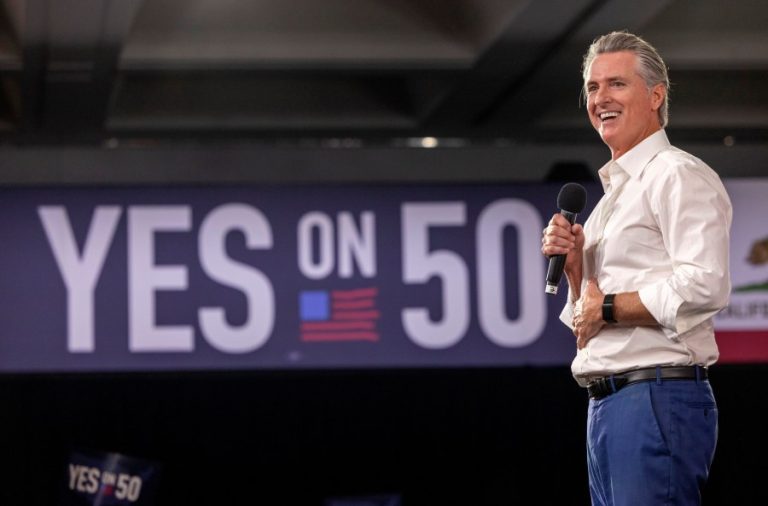(NewsNation) — California voters said yes to Proposition 50, according to NewsNation/Decision Desk HQ.
A “yes” vote on the measure would establish a new congressional map for the next three election cycles, potentially flipping as many as five U.S. House seats to Democratic control. A “no” vote would keep the current district maps in place.
Proposition 50 comes amid a growing national fight over redistricting, as both parties accuse the other of partisan gerrymandering. Republicans in Texas recently pushed to redraw congressional districts mid-decade — an unusual move aimed at helping the GOP retain control of the House in 2026.
California’s Democratic Gov. Gavin Newsom championed Proposition 50 as California’s answer to Texas, a Democratic push to blunt the GOP mid-cycle redistricting effort encouraged by President Donald Trump.
Democrats currently control 43 of California’s 52 U.S. House seats, and Proposition 50 could help them pick up five additional seats.
A “yes” vote would approve a new U.S. House map already passed by the state’s Democrat-controlled State Legislature, circumventing districts adopted by an independent citizens commission after the 2020 census.
Supporters of the measure saw it as a chance to beat Republicans at their own game — using redistricting to counter what they saw as partisan gerrymandering.
Critics of Proposition 50 argued that it would dismantle safeguards designed to keep elections fair, a power grab that shifts redistricting control from citizens to politicians.
Both sides poured significant money into the fight, raising more than $166 million combined, according to a Ballotpedia breakdown of campaign finances. Supporters brought in about $122 million, while opponents raised roughly $44 million, making it the fourth most expensive ballot measure in California history.
Newsom was the public face of the measure, but it received significant financial backing from the state’s powerful unions.
Former California Gov. Arnold Schwarzenegger came out against Proposition 50 and accused Republicans and Democrats of trying to “outcheat each other.”
Rick Hasen, a law professor at UCLA, called Proposition 50 “highly unusual” in a recent article, but said any legal challenge under state law would likely fail because if the measure passed, it would amend the state constitution.
Still, Hasen noted, the newly drawn lines could face a federal court challenge — similar to what’s already happening in Texas.

